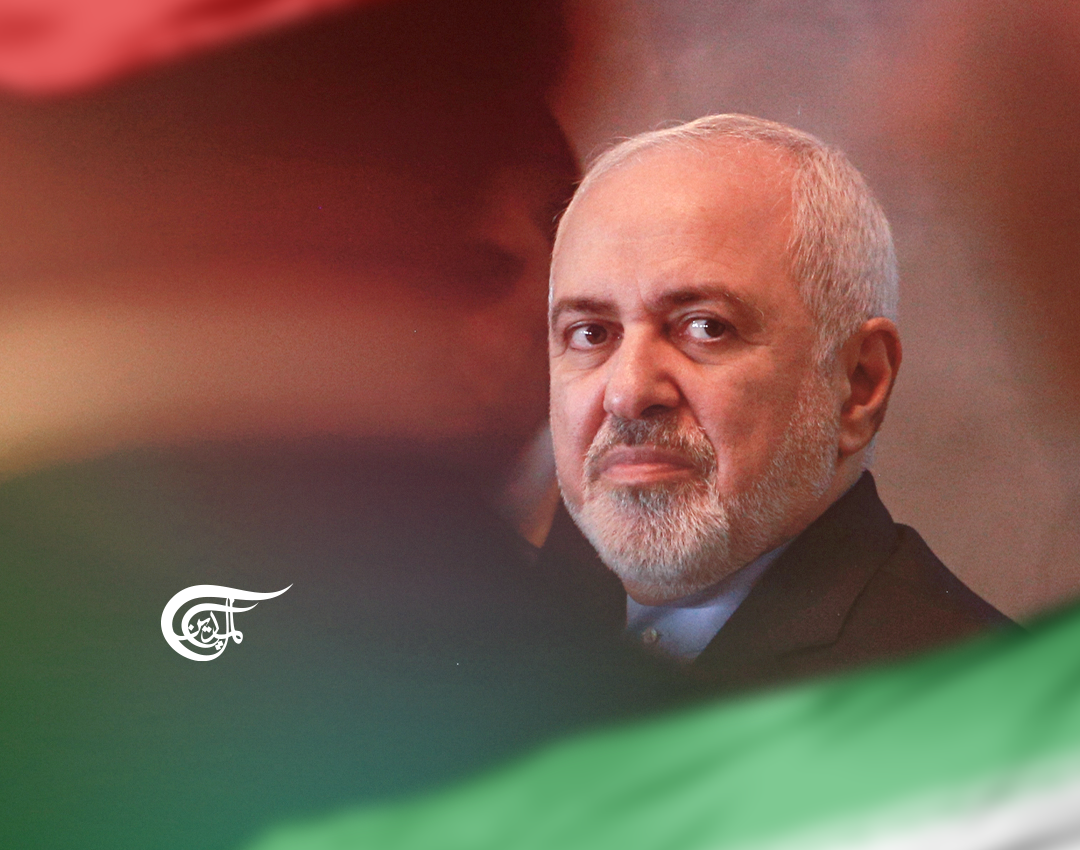Farewell to Mohammad Javad Zarif, Iran’s Diplomatic Warrior
There is no doubt that Iran will miss the personality, presence, experience and fame of Mohammad Javad Zarif.
An atmosphere of anticipation prevails in Iran and the whole Middle East region, waiting to know the person whom President Ibrahim Raisi will choose as Minister of Foreign Affairs in his new administration. What increases the anticipation is that the newcomer will succeed an important and influential minister who left an imprint in the history of the Islamic Republic of Iran, Mohammad Javad Zarif, and he will undoubtedly be compared to him.
Who is Mohammad Javad Zarif? he was born in Tehran in 1960 to a devoutly religious and well-off merchants family. In his early youth in the seventies of the last century, Zarif witnessed the growth of the popular uprising in Iran against the Shah’s regime, and was influenced by the writings and ideas of the famous Iranian thinker, Ali Shariati, about the revolutionary, progressive Islam that opposes tyranny and subordination, and consequently joined the active student Islamic societies. Perhaps his family's fear of him being arrested by the Savak (the Shah's intelligence apparatus) prompted them to send him at an early age, 17 years, to the United States to study. In America, Mohammad Javad Zarif spent eleven years, during which he obtained a doctorate in political science and international law, and graduated from the Universities of Denver and San Francisco. Although the United States was base to many Iranian opposition figures and remnants of the Shah's regime, Zarif remained loyal to the new revolutionary Islamic regime that emerged in Iran under the leadership of Grand Ayatollah Khomeini.
Zarif returned to Iran in 1988 to offer his services to the Islamic Republic's regime. The officials in Iran quickly appreciated his qualifications and competencies and recruited him in the cadre of the Ministry of Foreign Affairs. Due to his long stay in the US and his graduation from American universities he was perceived, rightly, as an expert in American affairs. The star of the young Mohammad Javad Zarif started to rise in the Ministry of Foreign Affairs until he was appointed in 2002, during the era of reformist President Mohammad Khatami, as the permanent representative of Iran to the United Nations. He remained in the position until 2007 when he was replaced by the government of the hard-line President Ahmadinejad by Ambassador Mohammad Khozaei.
When the reformist President Hassan Rouhani came to power in 2013, Mohammad Javad Zarif's status reached its peak. He was appointed as Foreign Minister with a major task of difficult, sensitive and strategic nature for Iran on him: trying to reach an agreement on the nuclear program with America and Western powers. Zarif started the hard work from where President Khatami left off, after Ahmadinejad, his friend Saeed Jalili, and his Foreign Minister Manouchehr Mottaki had effectively frozen negotiations with America and halted any progress in that direction in recent years
Although influential people in the fundamentalist and conservative circles inside Iran viewed with reservations Rouhani-Zarif’s “dash” towards an agreement with America, Zarif proved his worth and showed solidity in the very complex and difficult negotiations, and succeeded in adhering to the Iranian red-lines and principled positions, imposing them on the other parties. The most important of which was the separation between Iran’s nuclear file and its missile capabilities and activities in the region. The result was an agreement that very much served Iranian national interests, especially the lifting of the long-standing economic sanctions, which opened the door to economic recovery in the country. Zarif's famous smile from the hotel balcony after the announcement of the agreement was a triumphant moment in his long political and diplomatic career.
But unfortunately for Zarif, things did not go as he wished. His agreement with America had a weak point that Trump exploited to spoil everything that Zarif and John Kerry accomplished and throw their agreement into the garbage! Zarif had actually accepted that the outcome of the negotiations would be an "agreement" with the US government, rather than a binding "treaty" ratified by the US Congress. Certainly, that difference between an "agreement" and a "treaty" was well–known to Zarif and his highly qualified and experienced negotiating team. But Zarif realized that, in the circumstances, obtaining a “treaty” from America was almost impossible in light of the strong opposition, mainly Republican, to President Obama in the US Congress. Therefore Zarif had to be satisfied with the agreement which he achieved, while making sure that it was documented at the United Nations and involving the other major countries in the world. That was the only option realistically possible.
The relationship with the Supreme Leader and the Revolutionary Guards was a constant challenge to Mohammad Javad Zarif (and to any foreign minister in Iran). Due to the circumstances that surrounded the emergence of the Islamic Republic’s regime and the many conspiracies that the Iranian revolution was exposed to in its beginnings, there was a constant and strong suspicion towards Western countries in general and America in particular. Trust is lacking and hostility is deeply rooted. Therefore, the task of the Iranian diplomat is usually arduous in convincing the supreme authority in Iran of the worth and success of dealing with the historical enemies of the revolution and the regime. Diplomats often complained about interferences that hindered their work or about the lack of field information on the activities of the Revolutionary Guards in the region (as heard in the leaked recordings of Zarif himself during his classified testimony to the Iranian archives). But Zarif succeeded to a large extent in gaining the confidence of the Supreme Leader and the Revolutionary Guards leadership and thus making them realize the importance of what he is doing at the diplomatic level for the benefit of the Islamic Republic's regime. He, in turn, was aware of his limitations and his position within the system, and acted with a high degree of self-confidence. The incident that took place in 2019 is very famous, when Zarif publicly submitted his resignation in protest against the protocol of Syrian President Bashar al-Assad’s visit to Iran and his meeting with Supreme Leader Ayatollah Khamenei, in the presence of Lieutenant-General Qassem Soleimani, without his presence as Foreign Minister, or even his knowledge of the visit. On that day, the late Qassem Soleimani visited him in his office at the Ministry of Foreign Affairs and apologized to him until he withdrew his resignation.
On the personal level, Mohammad Jawad Zarif is a faithful Muslim who regularly performs his religious duties, and his wife adheres to the Islamic dress code. He is kind, elegant, and has a permanent smile that makes dealing with him smooth and pleasurable by his foreign counterparts, despite his adherence to the principles of the Islamic Republic's regime and the difficulty of extracting concessions from it. He is also an accomplished speaker in front of the media and is able to confront the toughest journalists and the harshest questions with calm and skill. He uses social media platforms efficiently. Few years ago, Zarif wrote a biographical book called "Mr. Ambassador" which became popular in Iran.
There is no doubt that Iran will miss the personality, presence, experience and fame of Mohammad Javad Zarif. Even if the new Iranian foreign minister belongs to a politically different grouping from Zarif, and regardless of how qualified and competent the new minister is, the shadow of Mohammad Javad Zarif will remain with him, at least for a while.

 Hussam AbdelKareem
Hussam AbdelKareem
 7 Min Read
7 Min Read












